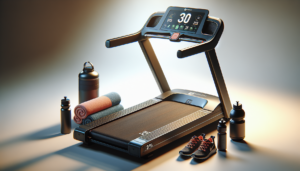Introduction to Yawning During Exercise
Have you ever found yourself yawning in the middle of a workout, despite feeling energized and focused? You’re not alone. Many people experience the phenomenon of yawning during exercise, which can seem counterintuitive given the stimulating nature of physical activity. This article will explore the reasons behind this common occurrence and shed light on the complex relationship between exercise and yawning.
What is Yawning?
Yawning is a universal human behavior that involves taking a deep breath, opening the mouth wide, and exhaling slowly. While commonly associated with sleepiness or boredom, yawning can also occur as a reflex action triggered by various stimuli. Understanding the fundamental nature of yawning is essential to grasping why you might yawn when working out.
Common Triggers for Yawning
Several factors can trigger yawning, including:
- Fatigue or sleepiness
- Boredom or lack of mental stimulation
- Seeing or hearing someone else yawn (contagious yawning)
- Changes in brain temperature
- Altered levels of neurotransmitters in the brain
While these are common yawning triggers, the specific causes of yawning during exercise may be more complex and involve a combination of physiological and environmental factors.
Physiological Reasons for Yawning During Workouts
Role of Neurotransmitters and the Hypothalamus
Yawning is controlled by neurotransmitters in the hypothalamus, a region of the brain that regulates various bodily functions. During exercise, changes in the levels of these neurotransmitters, such as dopamine and serotonin, may contribute to the urge to yawn. Additionally, the hypothalamus plays a role in regulating body temperature, which can also influence yawning behavior.
Impact of Body Temperature
Exercise and body temperature are closely linked, as physical activity generates heat and causes the body’s core temperature to rise. One theory suggests that yawning during exercise may serve as a brain cooling mechanism. By inhaling deeply and exhaling slowly, yawning can help lower the temperature of the blood flowing to the brain, promoting optimal cognitive function.
Brain Cooling Mechanism
The brain cooling hypothesis proposes that yawning helps regulate brain temperature by increasing blood flow and facilitating heat exchange. When you yawn during exercise, the sudden intake of air may help cool the blood vessels in the face and neck, which in turn cools the blood supplied to the brain. This mechanism could be particularly important during intense workouts when the body’s core temperature rises significantly.
Environmental and Exercise-Specific Factors
Influence of Climate
Interestingly, climate and environmental conditions can impact yawning frequency. Studies have shown that people tend to yawn more in moderate climates compared to very hot or cold environments. The reason behind this observation is not entirely clear, but it may be related to the body’s temperature regulation mechanisms and the need for brain cooling in certain conditions.
Types of Exercises That Trigger Yawning
Certain types of exercises seem to be more likely to trigger yawning than others. For example, many people report yawning during intense strength training exercises like deadlifts and squats. These compound movements engage large muscle groups and can significantly raise body temperature, potentially leading to the brain cooling response associated with yawning.
When to Be Concerned About Yawning During Exercise
Potential Health Concerns
While yawning during exercise is generally not a cause for concern, excessive yawning accompanied by other symptoms may indicate an underlying health issue. For instance, frequent yawning along with shortness of breath or dizziness could be a sign of a panic attack or a dizzy spell. In such cases, it’s essential to pay attention to your body and seek medical advice if necessary.
When to Seek Medical Advice
If you experience excessive yawning during exercise that interferes with your workout or daily life, it’s a good idea to consult a healthcare professional. They can help rule out any potential health concerns and provide guidance on managing your symptoms. Remember, while yawning during physical activity is common, it should not be debilitating or cause significant distress.
Conclusion
Yawning during exercise is a normal and widely experienced phenomenon. The reasons behind why you yawn when working out are complex and involve a interplay of physiological, environmental, and exercise-specific factors. From the role of neurotransmitters and the hypothalamus to the impact of body temperature and brain cooling mechanisms, various elements contribute to this curious behavior.
While yawning during exercise is generally harmless, excessive yawning accompanied by other concerning symptoms may warrant medical attention. By understanding the science behind exercise and yawning, you can better appreciate your body’s intricate mechanisms and feel more at ease when those mid-workout yawns strike.






